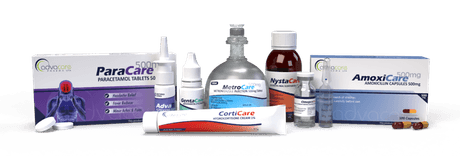What is the meaning of Antifungals?
Antifungals are medications used to treat fungal infections. Fungal infections range from superficial skin and nail infections to more serious systemic infections that can affect internal organs. They can be administered topically, orally, or intravenously, depending on the type and severity of the infection.
Medication for fungal infections targets the fungal cells' structure, metabolism, or reproductive mechanisms, preventing their growth and reproduction. Antifungal treatments' scientifically proven effects include reducing the number of fungi in the body, alleviating symptoms associated with fungal infections, and preventing the spread of infection.
Common antifungal medications are used in various areas of medicine, including dermatology, gynecology, oncology, and critical care, and have been proven effective in treating a wide range of fungal infections. Antifungal medicines have also been used successfully in patients with weakened immune systems, such as those with HIV/AIDS or undergoing chemotherapy.


